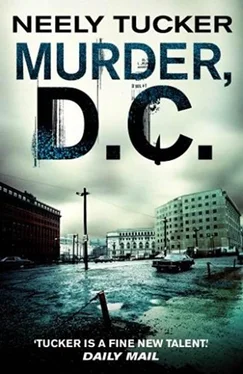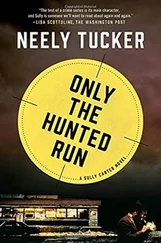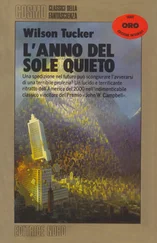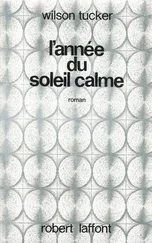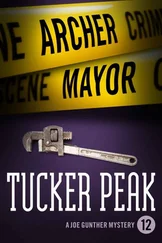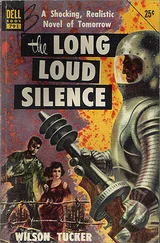“Shellie Stevens,” he said.
“Yes.”
“Ah. It’s none of mine, Ms. Ellison, but since you mention it, why would your employer be in possession of information about your son’s death?”
“Because he’s conducting his own investigation,” she said. “He’s hired private investigators.”
“Ah.”
He eyed her pleasantly, as if this made sense, as if everybody’s son got killed and their employer funded some sort of parallel homicide investigation. But the look coming back at him now was no longer so doe-eyed and confused. Her eyes seemed more black than brown, her manner more focused, more of an air of condescension.
Sully set his pen down on his notebook.
“Do the police know of this private eye investigation?”
“Of course. They seem to have no idea who killed Billy. It’s shocking. You hear of killings, homicides, you expect the police to know the, the landscape. They don’t seem to. No ideas at all. Shellie is trying to help. You can’t have any idea of how it is, your only child a murder victim, and for all you know, the killer watching your house each day.”
“No, ma’am.”
“Shellie hired private investigators last night. They have more time and, if I may, more energy than the D.C. police force, such as it is.”
“It’s good you can do that. So many parents I talk to, in situations like this, they feel helpless.”
She nodded emphatically, as if he were a slow student. “That’s why I want you to ask Shellie anything you need to know. You’ll need to ask him if it’s okay that I talked to you, and ask him what I can be quoted as saying.”
He had to work to keep the poker face. There was a conscious effort not to fold his arms-you had to make every gesture an indication of being open-but now he leaned back in his chair, making no move toward writing in the notebook. “I’m not following. Shellie Stevens is your employer, and you want to check with him if you can say something about your son?”
Delores Ellison leaned forward now, a half smile, indulging him but not dismissing him.
“Well, like everything else he does, if you know him, Shellie doesn’t want any publicity. He’s already met with the police, with the mayor’s office, the DOJ, the coroner. I wouldn’t want to just say something in the paper without him saying, you know, okay on that.”
“So, you’d like me to ask him myself?”
“That would be wonderful,” she said. “And could you do me a favor? Could you just not mention that you and I talked today? That you just came to his office and asked if you could talk to me?”
“Well.” This was getting creepy. “Why would he be expecting me to ask permission to talk to you?”
“You know Shellie?”
“Of him.”
“Interviewed him?”
“To the best of my knowledge, no one ever has, at least on the record.”
“Then you know the value he puts on being invisible. On not having his name, the firm’s name mentioned, at all. His whole practice is based-”
“On not leaving fingerprints,” Sully said. “I know. So why would he talk to me about this?”
“Oh, he’s not,” she said. “He’s absolutely not. That’s not what I was saying. You’ll contact the firm, leave a message that you’d like to talk to me off the record, about Billy, and that you’re touching base with him out of respect for the firm’s privacy.”
Heat rose behind his eyelids. “The firm’s privacy is a position they take to the rest of the world, particularly the media,” he said, as evenly as possible. “That’s not necessarily the position we’d take toward them. Look, it’s up to you if you talk to us, no one else. If you’re trying to tell me you’re feeling some pressure from your employer not to talk about the murder investigation of your son, then the paper would take a very dim view of that and we’d-”
“Do you want to talk to me, and maybe see the files his investigators produce?”
“Of course,” he said. Playing dumb.
“Then do it his way. Shellie’s not going to say anything to you, but if it’s okay, he’ll tell me he got this call from you, and ask if I want to talk to you, and so on. Really. He’s doing so much. You don’t understand.”
He nodded. The number of people in this town who lectured him, who told him he didn’t know what he was doing, that he didn’t understand, that… yeah, okay, whatever. It was endemic, this superiority complex, these fuckers-you give them some money, make them partner, a strategist, you get them close to a congressional committee on fuckall, they start acting like they legislated the goddamn world into being. He leaned forward in the chair now, picked up the pen, put it to paper, stuffing his contempt back down into a tube of social propriety.
“And what number should I call Mr. Stevens on, ma’am?”
SEVEN HOURS TILLdeadline and he still had his dick in his hand. Jesus.
He made two calls, right foot tapping.
The first one, Stevens’s secretary answered and said that the great man was not available until four thirty but she would pencil Sully in then.
The second one was to Jeff Weaver, the homicide cop John had designated to lead the investigation. Weaver said he didn’t have any time and Sully told him that you got to eat sometime and the man said he would be down at the Bend, round about two, and if Sully wanted to try to catch him there then, well, hey, fine, none off his.
That gave him about two hours.
Billy had been a history freak, his mom had said, so Sully made a couple of calls to where he’d been a student, Georgetown’s history department, sitting there in the chilly windless shade on the bike outside the Ellisons’. He got a receptionist on the line and it turned out Billy boy had been in the American Studies program, and the offices were right down on Prospect Street, near the top of the Exorcist steps. Fifteen minutes later, he was down there, pulling out his press ID, a little blue card on a lanyard, hanging it around his neck so everyone could see it, and then started pegging bright, fresh-faced students for intel. Of course, a rich dead kid like that on the evening news, one of only three black kids in the American Studies program-hey, man, everybody knew Billy.
The second guy he talked to said he knew Billy, liked Billy, had been to some parties with Billy, but that Elliot? Elliot, man, he really knew Billy, and Elliot, you could find him-wait, what time was it? Twelve thirty? Elliot always ate lunch in the cafeteria, like, every single day in the same place.
***
Elliot was sitting upright and alone, a skinny kid eating a tuna-fish sandwich out of a ziplock bag in the back right corner, looking down at a textbook. He half-stood when the kid made the introductions and left. Sully took the chair across the table and Elliot sat back down. He had glasses, square bifocals with black frames, and Sully wondered if that look had gone retro-hip, Elliot’s flannel shirt and jeans, the brown shoes, the whole getup singing nerd.
Elliot said he’d heard about Billy last night-officially, because he didn’t trust the television news and didn’t know anyone who did-but that he had known something was wrong because Billy had not come to classes or lunch Friday or Monday and that was just so unlike him.
“Two days, no lunch, hunh?” Sully said. “I’m guessing he must have eaten with you most days.”
Elliot regarded him blankly. “Who told you that?”
“Nobody,” Sully said. “Well, you. You said he didn’t come to lunch for two days. You would have had to be eating with him on a pretty regular basis to know he wasn’t in his usual spot, right?”
Elliot thought about it. “I guess.” And then he said, “Why did Ted bring you here?”
Читать дальше
